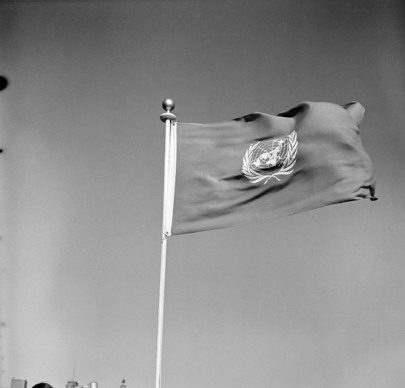Gaza city-bound UN aid convoy comes under Israeli fire: UNRWA
A UN convoy has been hit by “heavy shooting” from Israeli forces at a checkpoint while en route to Gaza city, the United Nations agency for Palestine refugees, UNRWA, said on Monday.
One armoured vehicle was hit by “at least five bullets” while waiting just ahead of the Israeli Forces’ checkpoint south of Wadi Gaza, which divides the north and south of the enclave, said Philippe Lazzarini, who’s head of UNRWA, in a post on X.
Mr. Lazzarini reported that that the car “was severely damaged” (and) took no further part in the mission which finally reached Gaza city”.
The development came as further Israeli airstrikes and heavy artillery continued to hit targets in villages east of Gaza’s Khan Younis.
New evacuation orders by the Israeli military have been issued to people sheltering in areas that it had previously designated as a “safe” humanitarian area west of Khan Younis, where some 400,000 people are believed to be sheltering, according to local authorities.
Media reports citing the Israeli military have indicated that it would be dangerous to stay in these areas as it intended to respond to attacks launched against it.
According to the UN aid coordination office, OCHA, about nine in 10 people in Gaza have been displaced at least once since last October.
With climate change heightening threats to global forests, UN report urges innovation
Climate change is making the world’s forests more susceptible to wildfires and pests, according to the UN Food and Agriculture Organization (FAO). The State of the World’s Forests 2024 report stresses the need for innovation in the forestry sector, where wildfires are more intense and frequent – even in areas that were previously fire-free.
The problem is massive and requires urgent action from the international community, given that in 2023, wildfires released some 6,600 megatonnes of carbon dioxide globally.
Fires in the boreal zone just south of the arctic accounted for nearly a quarter of total wildfire emissions by 2021, up from 10 per cent previously, FAO said.
Its report also noted that climate change is making forests more vulnerable to invasive species, with pests and disease pathogens threatening tree growth and survival.
The pine wood nematode – a microscopic worm that attacks certain conifers, mainly pines – has already caused significant damage in Asia, and similar devastation is expected in North America by 2027 – a serious threat given that demand for global wood production is at record levels, at four billion cubic meters a year.
Nearly six billion people rely on non-timber forest products and 70 per cent of the world’s poor rely on wild species for their basic needs. Projections show global roundwood demand could grow by up to 49 per cent between 2020 and 2050.
FAO believes that science and innovation can help to address these challenges, including by using AI for data analysis and innovative financing for forest conservation.
WHO calls for improved access to neurological medicines
The UN World Health Organization (WHO) is calling for better access to medicines to close the huge treatment gap for brain disorders. A new report from the UN health agency shows that despite progress in developing effective treatments, the medicines are largely out of reach of those who need them most.
Dévora Kestel, Director of WHO’s Department of Mental Health, Brain Health and Substance Use, said that quality of life for people with neurological disorders can be improved, but most sufferers can’t get the treatment they need because the medicines aren’t available or are too expensive.
Neurological disorders are the leading cause of disability, with over 80 per cent of related deaths and health loss occurring in low and middle-income countries. The treatment gap affects more than three in four people in most low-income countries and for epilepsy, this gap can be as high as nine in 10 not getting the care they need.
Music composed and produced by Joachim Harris. All rights reserved
Source of original article: United Nations (news.un.org). Photo credit: UN. The content of this article does not necessarily reflect the views or opinion of Global Diaspora News (www.globaldiasporanews.com).
To submit your press release: (https://www.globaldiasporanews.com/pr).
To advertise on Global Diaspora News: (www.globaldiasporanews.com/ads).
Sign up to Global Diaspora News newsletter (https://www.globaldiasporanews.com/newsletter/) to start receiving updates and opportunities directly in your email inbox for free.

























